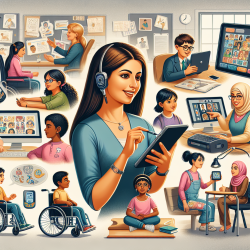In the ever-evolving landscape of healthcare, the ability to empathize with and understand diverse patient populations is crucial for practitioners. A recent study titled "Exposing Medical Students to Expanding Populations" highlights the transformative impact of educational programs designed to bridge the communication gap between medical professionals and underserved communities. This blog explores how practitioners can leverage the outcomes of this research to enhance their skills and improve patient care.
The MiniMed Program: A Model for Empathy and Understanding
The MiniMed program, initiated by Rutgers University New Jersey Medical School (NJMS), serves as a cornerstone for cultivating empathy among medical students. By engaging with underserved populations such as inmates and residents of therapeutic communities, students gain firsthand experience in understanding the unique challenges faced by these groups. This exposure fosters a deeper appreciation for diverse perspectives and enhances the effectiveness of physician-patient interactions.
Key Components of the Program
- Legacy Lecture Series: Senior faculty members share personal and professional experiences, providing valuable insights into the ethical challenges faced in healthcare.
- International Work Experience: Students participate in health-related activities in Huancayo, Peru, gaining exposure to different healthcare systems and cultural contexts.
- Community Outreach: Students deliver educational lectures to underserved populations, promoting health literacy and empowering individuals to engage more effectively with healthcare providers.
Implementing Research Outcomes in Practice
The findings from this research offer valuable lessons for practitioners seeking to improve their skills and patient care. Here are some strategies to consider:
- Cultivate Empathy: Engage with diverse patient populations through community outreach programs or volunteer opportunities. Understanding different cultural, social, and economic backgrounds can enhance your ability to empathize with patients.
- Pursue Continuing Education: Attend workshops or seminars focused on cultural competence and communication skills. Staying informed about the latest research can help you adapt to changing patient needs.
- Encourage Patient Participation: Foster an environment where patients feel comfortable asking questions and expressing concerns. This approach not only improves communication but also empowers patients to take an active role in their healthcare journey.
The Path Forward: Encouraging Further Research
The study underscores the importance of ongoing research in medical education and practice. By continuing to explore innovative educational approaches, practitioners can better serve increasingly diverse patient populations. Engaging in research initiatives or collaborating with academic institutions can provide valuable insights into effective strategies for improving healthcare delivery.
If you're interested in delving deeper into this topic, I encourage you to read the original research paper: Exposing medical students to expanding populations.










